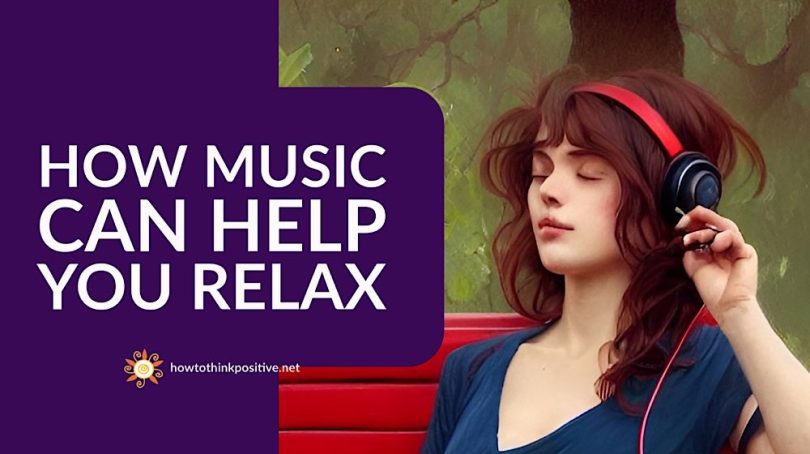When it comes to relaxation, there are many things that can help. For some, it’s reading a book, for others, it’s taking a bath. But for many people, music is the key to relaxation. Whether it’s classical, jazz, or even rock music, listening to your favorite tunes can help you relax and forget about your troubles.
The benefits of music on your mental health
Humans have been using music for centuries as a way to boost mood, relieve anxiety, and drift off to sleep. In recent years, science has begun to catch up, confirming what many of us already suspected: music really can have powerful effects on our mental health.
Here are some of the ways that music can improve your mental health:
- Reduce stress and anxiety
- Promote relaxation
- Improve sleep quality
- Increase energy and alertness
- Enhance concentration and focus
- Boost mood and overall well-being
The different types of music that can help you relax
Different types of music can have different effects on your mood and state of mind. While some music may energize you, other music may help you relax. When you’re feeling stressed, anxious, or overwhelmed, listening to calming music can be helpful.
The type of music that is most likely to help you relax is called “relaxing music.” This type of music is usually slow-paced and has a soothing, calming effect. It can often be described as “peaceful” or “tranquil.” Relaxing music is often used in massage therapy and other relaxation therapies.
Some studies have shown that relaxing music can lower blood pressure, heart rate, and anxiety levels. It can also help reduce stress hormones in the body. Listening to relaxing music for just 30 minutes can have these positive effects on the body.
If you’re looking for music to help you relax, there are many different genres that you can choose from. Some popular genres of relaxing music include:
Classical Music: Classical music is often slow-paced and has a calming effect on the listener. The solo piano pieces of Bach and Beethoven are particularly good for relaxation.
Ambient Music: Ambient music is a type of electronic dance music that is designed to be background noise rather than being focused on by the listener. This type of music often has a slow tempo and no words or lyrics.
Jazz Music: Jazz music is a genre that originated in the United States in the early 20th century. It typically features a laid-back feeling with a focus on improvisation. Jazz can be both calm and energetic depending on the style.”
How music can help you concentrate
Listening to music can have a profound effect on your mood, concentration, and focus. It can make you feel more relaxed, help you focus on your work, and increase your productivity. In this article, we’ll explore how music can help you relax, concentrate, and focus.
The benefits of music on your concentration
It’s no secret that music can have a powerful effect on your mood. Uplifting tunes can make you feel happier and more positive, while relaxing Songs can help you wind down and de-stress. But did you know that music can also impact your concentration levels?
Studies have shown that listening to music can help improve focus and concentration, whether you’re working on a project or studying for an exam. The right type of music can boost your productivity, while the wrong type can distract you from your task at hand. So how can you use music to your advantage?
First, it’s important to choose the right type of music. Uptempo, instrumental tracks are often the best for concentration, as they provide a background beat without being too distracting. Classical music is also a good choice, as it has been shown to calm the mind and improve focus. If you’re having trouble picking the right type of music, there are now plenty of concentration-boosting playlists available online.
Once you’ve found some songs that help you concentrate, it’s important to set the volume at a level that is comfortable for you. If the music is too loud, it can be distracting; if it’s too soft, you may not be able to focus on it. Experiment with different volumes until you find a level that helps you focus without being disruptive.
If you find yourself getting too wrapped up in the music and forgetting what you were supposed to be concentrating on, there are a few things you can do. First, try setting a timer for yourself so that you only listen to music for a certain amount of time before taking a break. Additionally, make sure to take breaks every 20 minutes or so; standing up and stretching or taking a short walk will help increase your blood flow and re-energize your body and mind.
Finally, don’t be afraid to experiment with different types of music until you find something that works for you. Everyone concentrates differently, so what works for one person might not work for another. The important thing is to keep trying until you find a system that helps boost your productivity levels.
The different types of music that can help you concentrate
It’s no secret that music can have a powerful effect on our moods. Few people would argue with the fact that certain songs can make us happy, sad, nostalgic, or even angry. But what about concentration? Can the right tunes actually help us focus and get work done?
The answer, according to the latest research, is a resounding yes. In one study, college students who listened to 30 minutes of classical music before taking a test improved their scores by an average of 9 percent. Other studies have shown that music can help office workers type more accurately and store more information in their short-term memory.
So what types of music are most effective for concentration? It depends on your personal preferences, but here are a few genres to try:
-Classical: This genre has been shown to be particularly effective for concentration and memory recall, probably because it is free of lyrics which can be distracting.
-Ambient: Ambient music is designed to be unobtrusive and relaxing, making it ideal for tasks that require sustained focus.
-Jazz: Like ambient music, jazz is often low-key and relaxing. But unlike some other genres, it also tends to be complex and slightly unpredictable, which may keep your brain actively engaged.
Of course, not everyone responds to music in the same way. So if you find that certain types of music make it hard for you to concentrate, don’t force yourself to listen to them. There are plenty of other genres (and styles within genres) to try. And if you’re still having trouble finding the right tunes, try white noise or nature sounds instead—they can be just as effective at helping you focus.
How music can help you focus
According to the website, “research has shown that listening to music can help you focus and concentrate, whether you’re studying for an exam, working on a project, or just trying to get through your day.” There are many different genres of music, so you can choose what works best for you.
The benefits of music on your focus
There are many benefits of music on your focus. Music can help you relax, concentrate, and focus. It can also help reduce stress and anxiety.
The different types of music that can help you focus
- There are four different types of music that can help you focus. They are:
- Music with a fast tempo and strong beat: This type of music can help to increase your heartbeat and make you feel more alert. It can also help you to stay motivated and focused on your work.
- Music with a slow tempo: This type of music can help you to relax and concentrate on your work. It can also help to reduce stress and anxiety levels.
- Music with no lyrics: This type of music can help you to focus on your work by reducing distractions. It can also help to increase your concentration levels.
- Ambient noise: This type of sound can help you to focus on your work by blocking out other distractions.
Hope that gave you a bit more insight on how you can use the power of music to increase your creativity but also relax, focus, and have a soothing and calming effect for a better quality of life. Just make sure you choose some good music.







